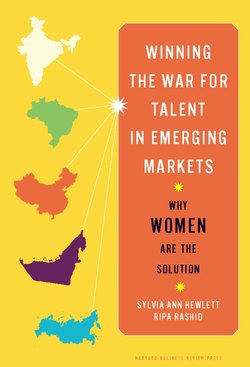Читать книгу Winning the War for Talent in Emerging Markets - Sylvia Ann Hewlett - Страница 5
На сайте Литреса книга снята с продажи.
THE BENEFITS BRIC WOMEN BRING
ОглавлениеIn addition to providing much-needed qualified talent to growth-minded companies, from Shanghai to São Paulo, from Moscow to Mumbai, educated women have much to offer their employers.
Those markets are increasingly dominated by women. As women flood into management positions, a surprising number are earning salaries greater than their spouses. Women now control two-thirds of all consumer spending. Married women are overwhelmingly the primary decision makers for their family's purchases of food, clothing, health care, education, and household products.
Educated women in emerging markets bring a keen sense of the consumer marketplace to their employers. When translating product development and marketing strategy into emerging markets, the mandate to “think globally and act locally” in pragmatic terms means “hire more women.” Lisandra Ambrozio, Pfizer's human resources director in Brazil, doesn't need convincing. “More than fifty percent of doctors here in Brazil are women. Seventy-five percent of the health decisions made in the family are made by women, not by men. We need to understand what is in the mind of a female doctor, or we need to better understand women, because they are the ones who make the health care decisions in a family.” She continues, “Gender diversity is not a social issue. It's a business issue, not only for Pfizer but for each company in the market.”
Ambrozio's comments are echoed by Hiroo Mirchandani, business unit director at Pfizer, India: “We know women are good at engaging customers, nurturing relationships, and communicating product features. Tapping in to this talent pool provides a competitive advantage.”
In the entrepreneurial economies of emerging markets, women are key to connecting with the main engine of growth: the small-to-medium business market. “The SMB market in emerging markets is the market,” explains Tracy Ann Curtis, Cisco Systems' head of inclusion and diversity for Asia-Pacific and Japan. “It's not the big enterprise market any longer. We're servicing small entrepreneurial companies, and 33 percent of them in Asia are owned by women. If we want to sell into that market, we've got to understand who those women are and how they reflect on the marketplace.”
The diversity of thought, perspective, and experience that educated women add to any organization is multiplied in developing markets. Because of the obstacles they've often had to overcome, they bring a determination and a “can do, leave no stone unturned, we'll find a way” approach to coming up with solutions, says Goldman Sachs's Carlotti. When they solve problems, it sends a signal of “openness, creativity, forward thinking, and an innovative approach” to potential hires as well as clients. He concludes, “For me, when you look at who's coming into the workforce and what they can mean for the development of human capital, it's a no-brainer that women are a competitive advantage.”
